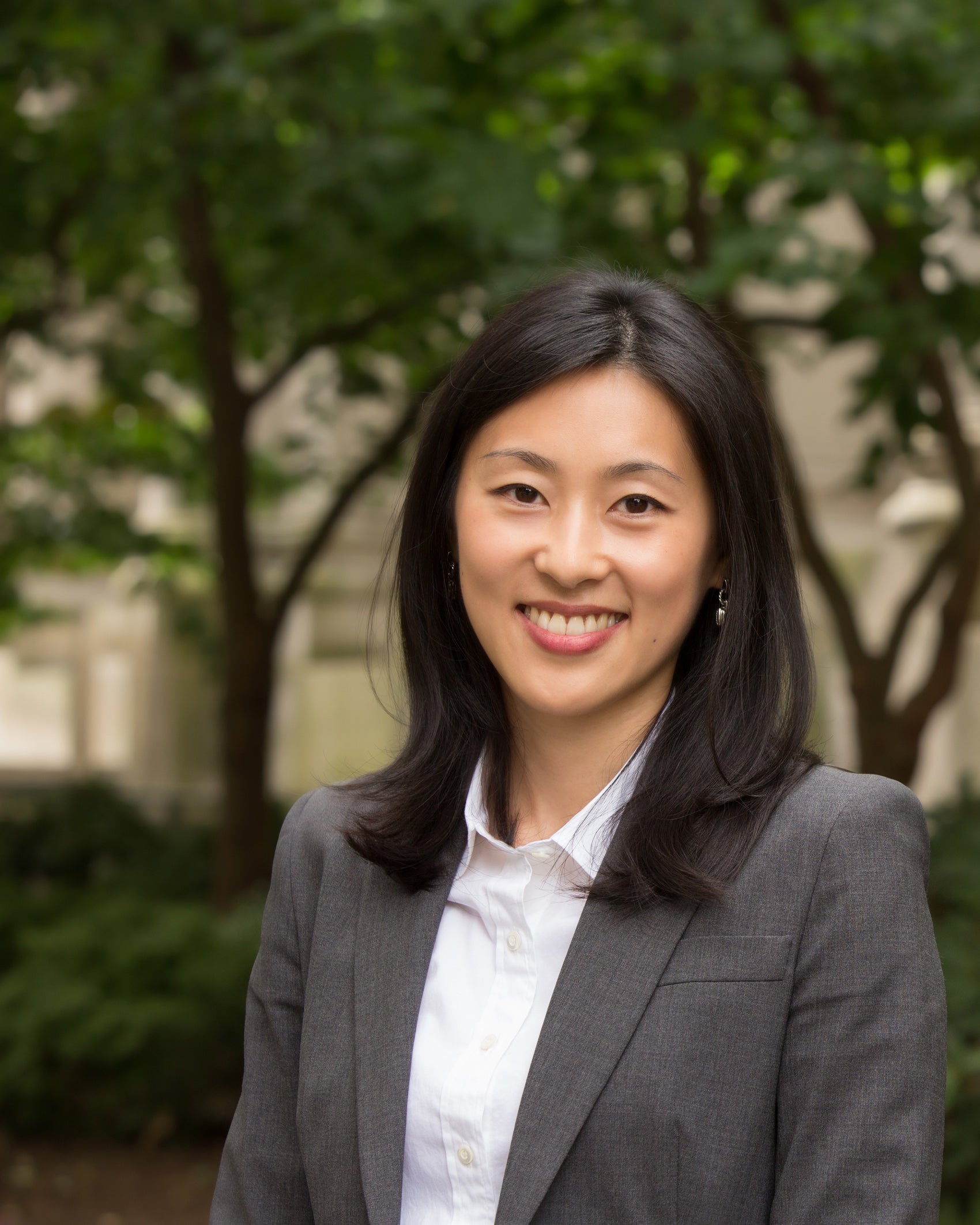Crystal Yang ’13, a law and economics scholar, was promoted to professor of law at Harvard Law School effective July 1, 2019. Yang, who joined the faculty as an assistant professor in 2014, focuses her teaching and research on empirical law and economics, particularly in the areas of criminal justice, consumer bankruptcy, and immigration and welfare policy.
Yang’s recent empirical projects focus on the effects of the bail system on defendants’ short and long-term outcomes, racial bias in the criminal justice system, the spillover effects of deportation fear, and the use of algorithms in the criminal justice system. Her research has been cited by criminal defense lawyers, in class-action lawsuits challenging the money bail system, and by the U.S. Supreme Court.
“Crystal Yang’s rigorous empirical research has brought important clarity to urgent questions about how the criminal justice system works for some of the most vulnerable among us and, in so doing, has helped inform reform efforts across America,” said Harvard Law School Dean John F. Manning ’85. “Since she joined the faculty five years ago, Crystal has also been a wonderful teacher and mentor to new generations of Harvard Law students.”
“Harvard has been a wonderful and supportive home for me and I have benefited greatly from interacting with an exceptional community of scholars, students, and staff,” Yang said. “I am thrilled and honored by the promotion.”
In addition to publications in leading economics journals and law reviews, her work has been featured in the New Yorker, New York Times, Washington Post, Wall Street Journal, The Economist, and the Boston Globe, among other media outlets.
Two recent studies, “Racial Bias in Bail Decisions” (with David Arnold and Will Dobbie), published in the Quarterly Journal of Economics, and “Judicial Politics and Sentencing Decisions” (with Alma Cohen), published in the American Economic Journal: Economic Policy, were featured in the New York Times as part of their coverage on inequities in the cash-bail system and bias in sentencing by Republican-appointed judges. Her study, “Fear and the Safety Net: Evidence from Secure Communities” (with Marcella Alsan), on how the roll-out of a far-reaching immigration enforcement program affected the demand for safety net programs in the United States, was featured in The Economist as part of their coverage on “The perverse side effects of America’s harsh immigration policies.”
Her other recent publications include: “The Effects of Pre-Trial Detention on Conviction, Future Crime, and Employment: Evidence from Randomly Assigned Judges” (with Will Dobbie and Jacob Goldin), American Economic Review (2018); “Consumer Bankruptcy and Financial Health” (with Will Dobbie and Paul Goldsmith Pinkham), Review of Economics and Statistics (2017); and “Toward an Optimal Bail System,” New York University Law Review (2017).
Yang is currently a faculty research fellow at the National Bureau of Economic Research, a director at the American Law and Economics Association, and a member of the American Economic Association and Society for Empirical Legal Studies. This fall, she will join the Board of Editors of the American Economic Journal: Economic Policy. She most recently was the Stephen Friedman Visiting Professor of Law, Columbia Law School, Fall 2018; a visiting professor of law, New York University School of Law, Fall 2017; and visiting associate research scholar, Princeton University, Fall 2016.
Prior to joining HLS, Yang served as the Olin Fellow and instructor in law at the University of Chicago Law School, where she taught a seminar on Empirical Criminal Law. From 2014 to 2015, she was a Special Assistant United States Attorney in the U.S. Attorney’s Office for the District of Massachusetts, where she handled trial-level criminal investigations and briefed and argued multiple cases before the United States Court of Appeals for the First Circuit.
Yang graduated magna cum laude from Harvard Law School in 2013, where she was a John M. Olin and Terence M. Considine Fellow, and recipient of the John M. Olin Prize. She also received her Ph.D. in economics from Harvard University in 2013 and was a recipient of a National Science Foundation Graduate Research Fellowship. She earned an A.B. in economics summa cum laude and an A.M. in statistics from Harvard University in 2008.
